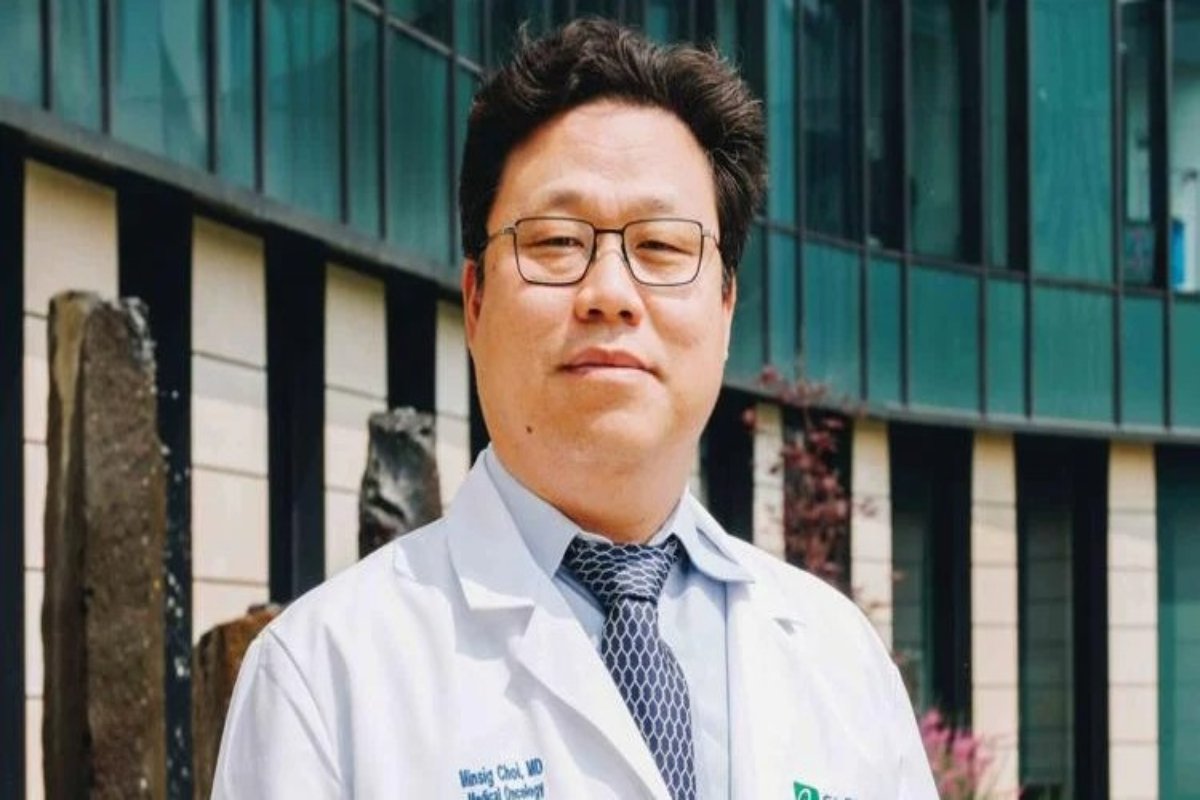Insights and groundbreaking research continue to improve cancer treatment, and St. Elizabeth Healthcare is one of many hospitals on the frontlines of this important battle.
Still, early detection remains one of the most crucial factors in treatment, says Dr. Minsig Choi, medical oncologist at St. Elizabeth. “Patients believe cancer is lethal and deadly,” he explains, “but early cancer is highly curable.”
Dr. Choi recently came to St. Elizabeth after leading the gastrointestinal (GI) multidisciplinary team at New York’s Stony Brook University for the last eight years. He has also taken care of complex GI cancer patients over the last 19 years since completing fellowship training at Wayne State University (Karmanos Cancer Institute) in Michigan.
The vision St. Elizabeth has for cancer treatment, Dr. Choi says, aligns with his own: “providing excellent, innovative, multidisciplinary cancer care to all patients close to home.”
Cancer treatment options have improved, he says — like the recent discovery that certain drugs can stimulate our own immune system to better fight cancer. “So, we can offer immunotherapy in gastroesophageal and hepatobiliary cancer with less toxicity and better efficacy,” Dr. Choi explains.
“Another advancement is understanding tumor biology and using next-generation sequence,” he continues. “Now, we can sequence the whole cancer genome and provide targeted therapy to our cancer patients resulting in fewer side effects and better efficacy, which is also known as precision oncology. St. Elizabeth has been offering precision oncology and genomic services for the last five years, led by Dr. Brooke Phillips and Jaime Grund right in our backyard.”
With the right combination of early detection and evolving care, cancer patients are able to realize better results with more effective treatment.
“In most instances,” Dr. Choi says, “70-75% of colon cancer patients are able to be cured. Even at stage IV, with multidisciplinary care with the right surgeons – a medical oncologist, a radiation oncologist, an interventional GI, a pathologist and a radiologist – we’re curing what used to be considered incurable.
“Clinical trials and new drug developments are key to this improvement. There were four drugs for treating colon cancer when I was a fellow and now we have over 14 FDA-approved drugs for the same cancer type, and half of these drugs are targeted and immunotherapy.”
Aside from genetics and environmental factors, GI cancer can also be caused by smoking, alcohol use and obesity. “So eat right and exercise!” he advises.
“Cancer care is evolving every day,” Dr. Choi says. “And, at St. Elizabeth, we can provide the treatment of the future today with sub-specialization and team-based care that is personalized for you.”

